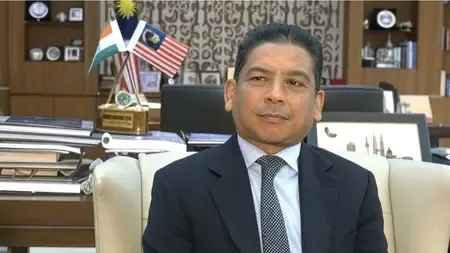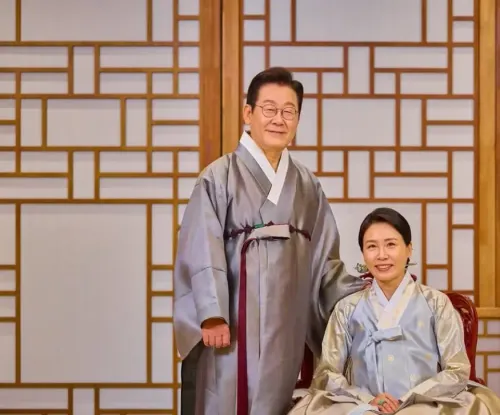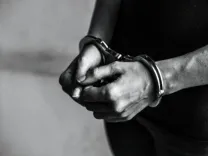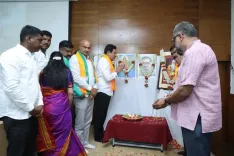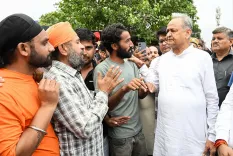Could Bangladesh's NCP Face Severe Consequences Over Election Symbol Dispute?
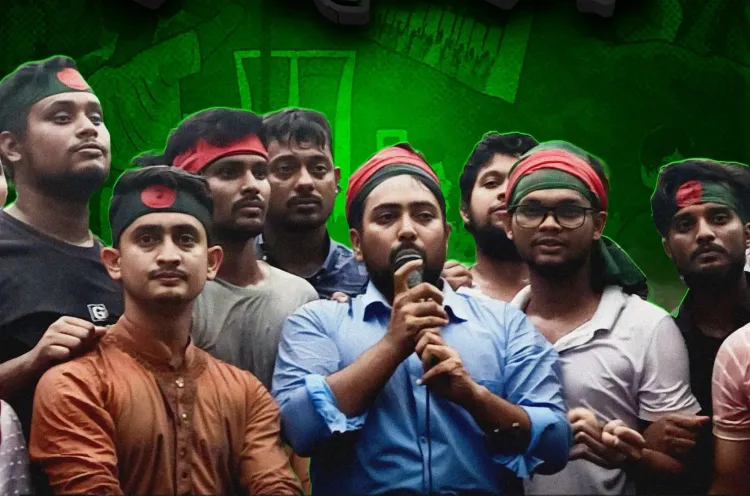
Synopsis
Key Takeaways
- The NCP warns of possible repercussions for elections if the Shapla symbol is denied.
- The party emphasizes the need for an independent election commission.
- There are claims of no legal barriers to using the Shapla symbol.
- Political tensions are escalating as elections approach.
- Trust in the electoral process may be at stake.
Dhaka, Oct 7 (NationPress) In a significant escalation of political tensions in Bangladesh, the National Citizen Party (NCP) has issued a stern warning about severe repercussions that could profoundly affect the upcoming elections if the party is not granted the Shapla (water lily) as its official electoral symbol.
This statement comes in response to the Election Commission's (EC) latest instruction directing the NCP to select its electoral symbol from a pre-approved list of 50 options, notably excluding the Shapla that the party has requested, as reported by local media.
In an interview with Bangladesh's prominent newspaper, The Daily Star, NCP Chief Coordinator Nasiruddin Patwary emphasized that the party will strive to establish an independent and constitutional EC through democratic means if its request is disregarded.
“Should the NCP be denied the Shapla symbol, it will undoubtedly influence the electoral process. An independent commission is paramount for ensuring fair elections. The absence of fairness could lead to unrest in the streets. However, our objective is to prevent such outcomes. If we find ourselves in a corner, we may have no option but to resist,” stated Patwary.
He further asserted, “If we are denied this right, we will endeavor to democratically establish an independent and constitutional election commission. Our pursuit of these demands will not waver, and we will continue our political struggle.”
Additionally, during a press briefing in Rajshahi city on Monday, Sarjis Alam, chief organiser of the NCP, reiterated that the party intends to contest the forthcoming elections using the Shapla symbol.
Alam urged the EC to reconsider its stance rather than focusing on denying the NCP the Shapla symbol. He argued that there are no legal impediments preventing the NCP from acquiring the symbol.
“Our team has diligently worked on this, taking into account all legal dimensions. After consultations with experts in electoral and symbol-related law, we resolved to adopt the Shapla as our symbol,” declared the NCP leader.
“There are no legal barriers here. If the Election Commission acts capriciously or succumbs to external pressures and refrains from granting us the Shapla symbol, it would indicate a loss of its integrity as an independent constitutional body. This would severely undermine our trust in the electoral system. Nevertheless, we remain optimistic about securing the Shapla symbol and contesting the elections under it,” he added.
As the nation gears up for next year's election, Bangladesh is enveloped in increasing uncertainty and political unrest.
Previously, student leaders had aligned with Muhammad Yunus and various other radical political factions to challenge the democratically elected Awami League government, led by former Prime Minister Sheikh Hasina.

